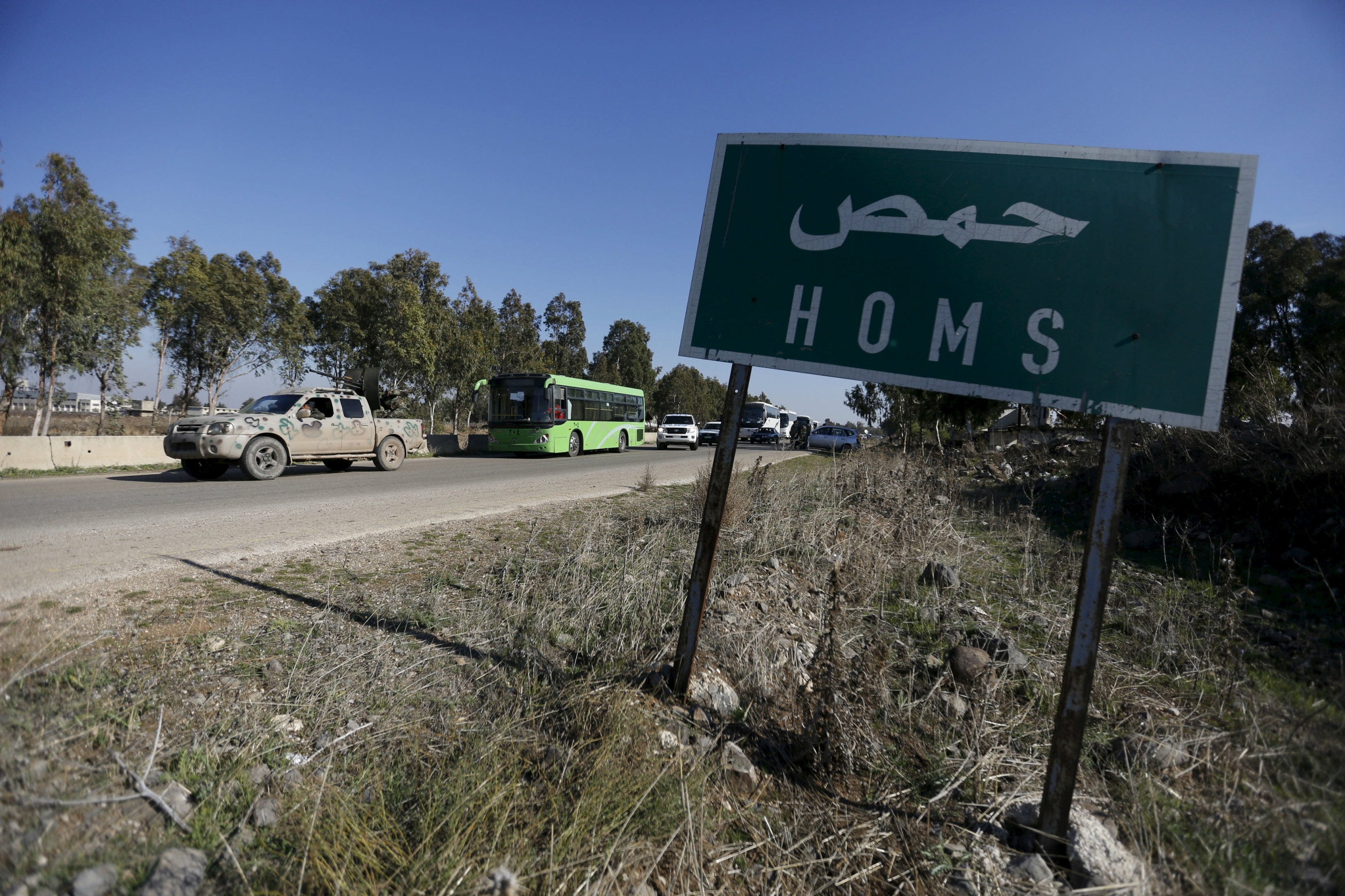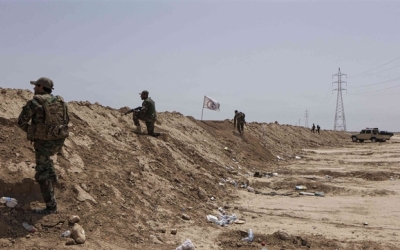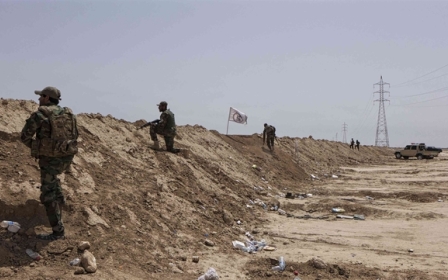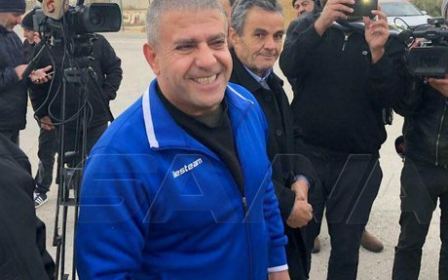Israel strike reportedly kills three Iran-backed fighters in Syria

Israeli jets attacked Syria's T4 air base in Homs province on Tuesday evening, according to Syria's army, adding that its air defences had downed several incoming missiles.
The army said four missiles reached the base, causing only material damage, but a UK-based activist group said three Iranians or fighters in Iranian-backed militias were killed in the attack and several others were in a critical condition.
State television earlier did not say who was behind the attack on the major air base, which Israel accuses of hosting an Iranian military presence and has attacked several times in recent years.
The attack, north of the capital Damascus, was said to have occurred at around 10pm (20:00 GMT).
"The Israeli air force conducted new aerial aggression and immediately our air defences confronted the enemy missiles," an army statement said.
The statement said the Israeli jets flew from al-Tanf, to the southeast, where the United States has set up a base near the Iraqi-Jordanian border.
Al-Tanf lies on the strategic Damascus-Baghdad highway, a major supply route for Iranian weapons into Syria.
The location makes the base a US hub inside Syrian territory - which Damascus says is illegally occupied - used as part of a larger US campaign against Iranian influence in Iraq and Syria.
Israel has repeatedly bombed Iranian-backed militia targets in Syria, saying its goal is to end Tehran's military presence, which has expanded significantly in recent years in the war-torn country.
The T4 base has been targeted by the Israel air force in the past, with the Israeli newspaper Haaretz reporting that Iranian cargo planes had previously flown to the base, supposedly unloading shipments from Tehran.
In June, Syrian state media reported that Israeli missiles were fired towards T4, a day after Israel struck Syrian targets in retaliation for rocket fire towards the occupied Golan Heights.
Two people were reported to have died in the strike, and two more wounded.
Earlier strikes
The Syrian Observatory for Human Rights said Tuesday's strike damaged an Iranian arms depot, two military vehicles and a building still under construction.
Observatory head Rami Abdurrahman said the dead were all non-Syrians, adding that Israel was probably behind the attack.
He said both Iranian forces and Russian military advisers were stationed at the base, which has been hit by Israeli forces in the past.
An Israeli army spokeswoman made no comment when contacted by AFP.
Iran's proxy militias led by Lebanon's Hezbollah now hold sway in large areas of eastern and southern Syria, the northwest, and several suburbs around Damascus.
They have also entrenched themselves in the strategically located border town of Albu Kamal on the Euphrates river in the Deir Ezzor province of eastern Syria near the border with Iraq where the Iraqi Hashd al-Shaabi militia have a strong foothold.
Air strikes against trucks and weapons depots in Albu Kamal killed eight Hashd al-Shaabi fighters last week, according to the Observatory.
Lebanon's Al-Mayadeen news outlet said Israel was responsible for the strikes early on Friday.
Significant opportunity to counter Iran's influence
The missile strikes in recent days add to the growing tension in the Middle East after a US drone killed senior Iranian commander Qassem Soleimani in a targeted strike in Baghdad on 3 January.
On Tuesday, the Israeli army's annual intelligence assessment said the killing of Soleimani represented a significant opportunity to counter Iran's growing influence in the region.
The report, which is presented to decision-makers in Israel, said that Israel's Military Intelligence (MI) believed an opportunity had been created to accelerate the pace of attacks against Iran and its allies.
Specifically, the report said that MI believes Soleimani’s death has the potential to allow Israel to curb or halt Iran’s continued attempts to transfer technology needed for Hezbollah to produce its own precision-guided missiles within Lebanon.
For now, the report says, Hezbollah is not believed to have this capability.
Access to large numbers of highly accurate missiles would represent a significant threat to Israeli national security, second only to the danger posed by an Iranian nuclear weapon, Israeli officials have said in the past.
The report urged Israel to seize the opportunity despite its assessment that Iran and Hezbollah will respond militarily if any of their people are killed.
Middle East Eye delivers independent and unrivalled coverage and analysis of the Middle East, North Africa and beyond. To learn more about republishing this content and the associated fees, please fill out this form. More about MEE can be found here.






